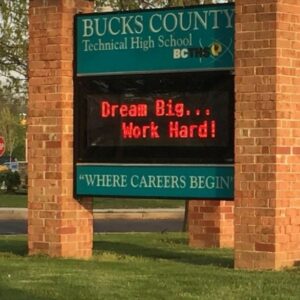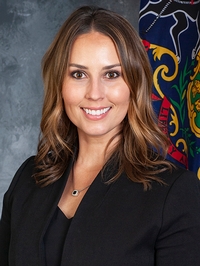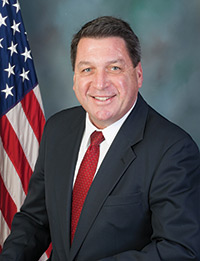In Harrisburg, Republicans believe in creating a child-first, family-focused educational experience where every graduate is prepared for the opportunity to experience earned success.
We understand that, as a necessary correlation, students and families need every choice available to them as they prepare for the future and garner the skills to prepare them for tomorrow’s workforce.
At a recent hearing in Perkasie, we heard from administrators, teachers, and graduates of the Upper Bucks County Technical School about how career and technical education must be a choice option that is open to as many students as possible.
CTE centers like the Upper Bucks County Technical School operate in every corner of Pennsylvania and work cooperatively with the private sector to train students for in-demand jobs that open the door to them to having family-sustaining careers and graduating with no student debt.
While Upper Bucks County Technical School does a great job of attracting and retaining students – it currently has a waiting list of over 170 students – Pennsylvania does a poor job of utilizing CTE resources at the high school level. Currently, we rank 36th out of 50 states in the portion of our students enrolled at CTE centers.
That means, as policymakers, we must work at the state level to incentivize more CTE education, work to provide resources to eliminate wait lists, and ensure we are providing students and families a viable path to the workforce through the strong training they can receive at CTE centers.
One of the things that we were reminded of at the hearing is that teachers at CTE centers have their training through real-world, practical experience, which they pass on. This gets students out of the theoretical world of the classroom and opens them up to highly trained and significantly qualified instructors who have walked a similar path to success and now want to pass on what they have learned to the next generation.
But we can do more to make it easier to transition real-world skills into classroom-ready lessons. Currently, only two colleges in Pennsylvania offer teaching certificate programs in career and technical education.
On top of that, the process of becoming certified to teach in Pennsylvania—whether in a traditional classroom setting or in the CTE arena—is demanding. The government must work to break down these barriers that have created the current teacher shortage and work to make it easier for the most highly trained and qualified to become teachers so they can pass on what they know.
In areas that could use increased CTE enrollment, we must also work to educate students and families on the benefits of career and technical education to break down stigmas associated with non-traditional education pathways about the increased earnings potential compared with those similarly positioned with a high school diploma, and how working in a family-sustaining job without student debt gives CTE graduates a leg up right at graduation.
Even more encouraging, we learned at the hearing that Artificial Intelligence or other future technologies do not easily displace CTE careers. These are career pathways that are secure now and into the future.
Clearly, there is more we can do to create a thriving economy in Pennsylvania, and that requires us to become more competitive with other states by having affordable living, lower taxes, and a workforce ready to take on jobs in community investment opportunities that will come our way.
As we look to make it easier to do business in Pennsylvania and to get a job here, incentivizing and utilizing CTE resources must be at the top of our list as we put forward policy to enhance our competitiveness and be a haven for the jobs of tomorrow.
Please follow DVJournal on social media: Twitter@DVJournal or Facebook.com/DelawareValleyJournal



